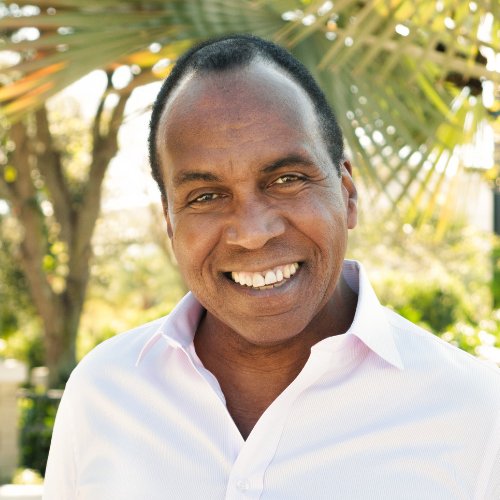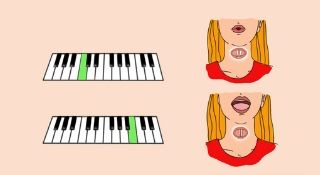Do You Hate the Sound of Your Voice?
I'm going to talk about a question I hear so much: “I hate the sound of my singing voice—what should I do?”
The Secret To Star Singing
Click HERE For The Secret To Star Singing
The Secret To Star Singing
Click HERE For The Secret To Star Singing
It's Natural to Be Self-Conscious
We all have a little bit of trouble with the sound of our voice, and that's natural. Our voice is our most personal form of expression. It's the first thing we know that people are going to hear when we open our mouths.
So it's natural and very normal to become a little self-conscious about that.
But there's another side to this too.
When you say to me, “I hate the sound of my own voice,” that tells me that you're doing something that's causing your reaction to your voice.
And that also tells me that you have convinced yourself that you can't sing. Which is sad because it's just not true!
So what we have to do is, first of all, convince you to think differently about what you might be able to do.
Once you begin to open your mind to the idea you are capable of a much better voice, we can look at what might be causing you to sound bad.
Here's the most common thing that would make a singer not sound their best:
If You Hate Your Voice, You're Pushing!
If you're hating the sound of your voice, it often means that you're trying to push your sound through to get a certain tonal quality or note.
And when you're doing this it's causing you to constrict in some way. So it's not going to sound great.
So the first thing we're going to do is to get you to start to hear yourself differently. And we're going to get you to also have a little more ease in the way that you're creating sound.
This will begin to allow your tone, your beautiful sound, to start to come through. That's our goal.
So we'll do an exercise in a moment. But I want you to have a concept first.
Remember Where Your Sound Comes From
Understand that you're creating your sound from vocal cords, your vocal folds, which are in your larynx (voice box). Your cords are inside there.
So imagine that you're looking inside there, and you can see your cords coming together. We want that larynx, that voice box, to stay stable, because that allows the air to come through so we can get a good sound.
With that idea of keeping your voice box nice and relaxed in mind, the next thing that will help a lot is being able to hear your notes nice and clearly.
Your Internal Hearing
I call it developing your internal hearing. With well developed internal hearing you'll be able to hear the notes you are singing. This will help you to stay in tune more of the time.
And since one of the things that might make a singer hate their voice is the amateurish sound of singing out of tune...
... Getting your voice back in tune will make you like your voice more!
A great tip for developing your internal hearing is to focus in the middle of your head, hearing exactly what you're doing.
The more you do this, the clearer the notes will become.
Let's do an exercise to get an experience of this:
Use This Exercise And Listen To Your Voice In The Middle Of Your Head
We're going to start with a simple lip trill. Put your hands at the sides of your mouth, pushing up a little bit. Start your lip trill, coming into it very easily. You can see me demonstrate at 2:31.
(The video below will begin at the correct spot)
The reason that I have you put your hands at the sides of your mouth is that I don't want you to go back in your throat. It's easier if you push up with your hands.
Think of it as taking the weight off, because you've been pushing so much. So think of taking the weight off, pushing up, and then bringing the sound down. We're starting to break your old habit of thinking you've got to force all of this to get out.
We'll do a lip trill, starting on a low note. We'll glide up an octave and half, and glide back down. You'll see that I'm starting very easily. I'm not tightening up. If you made the statement that you don't like the sound of your voice, you've been pushing. So we need to reverse that.
We can practice together, starting at 3:53. In this example, I'm doing a couple of other things that I want you to pay attention to. I was not taking a breath on my first note. If I've had a habit of pushing, I'm used to gulping, going back in my throat. We want to reverse that.
(The video below will begin at the correct spot)
Here's an audio you can use to practice this exercise.
Change Your Brain
Remember, if you've made the statement that you hate the sound of your voice, we have to change your brain. The only reason you hate the sound of your voice is because you're doing something physically that's been causing your voice to be a little off.
That's all it is.
That's causing the sound to be blocked. So we're reversing that.
And because we have to take some time to reverse what you've been used to doing physically, your brain is going to take some time to start to adjust as well.
And then you won't hate the sound of your singing voice anymore!
About The Author
 Roger Burnley - Vocal Coach Roger Burnley - Vocal Coach |
Roger Burnley is a vocal coach located in Hollywood, California. He has been teaching singers for over 30 years and singing for even longer than that.
Notable past and present clients include Macy Gray, Brandy, Ray J, The Beastie Boys, James Torme, Taylor Lautner, Nona Gaye, and many more.
His clients have collectively sold more than 30 million albums, with several reaching Platinum and Gold status.
Roger has been featured on VH1, TV Guide Channel, TV One,
and MTV appearing as a vocal expert.
About The Author
 Roger Burnley - Vocal Coach Roger Burnley - Vocal Coach |
Roger Burnley is a vocal coach located in Hollywood, California. He has been teaching singers for over 30 years and singing for even longer than that.
Notable past and present clients include Macy Gray, Brandy, Ray J, The Beastie Boys, James Torme, Taylor Lautner, Nona Gaye, and many more.
His clients have collectively sold more than 30 million albums, with several reaching Platinum and Gold status.
Roger has been featured on VH1, TV Guide Channel, TV One,
and MTV appearing as a vocal expert.









New! Comments
Show me you're alive! Leave a comment below...